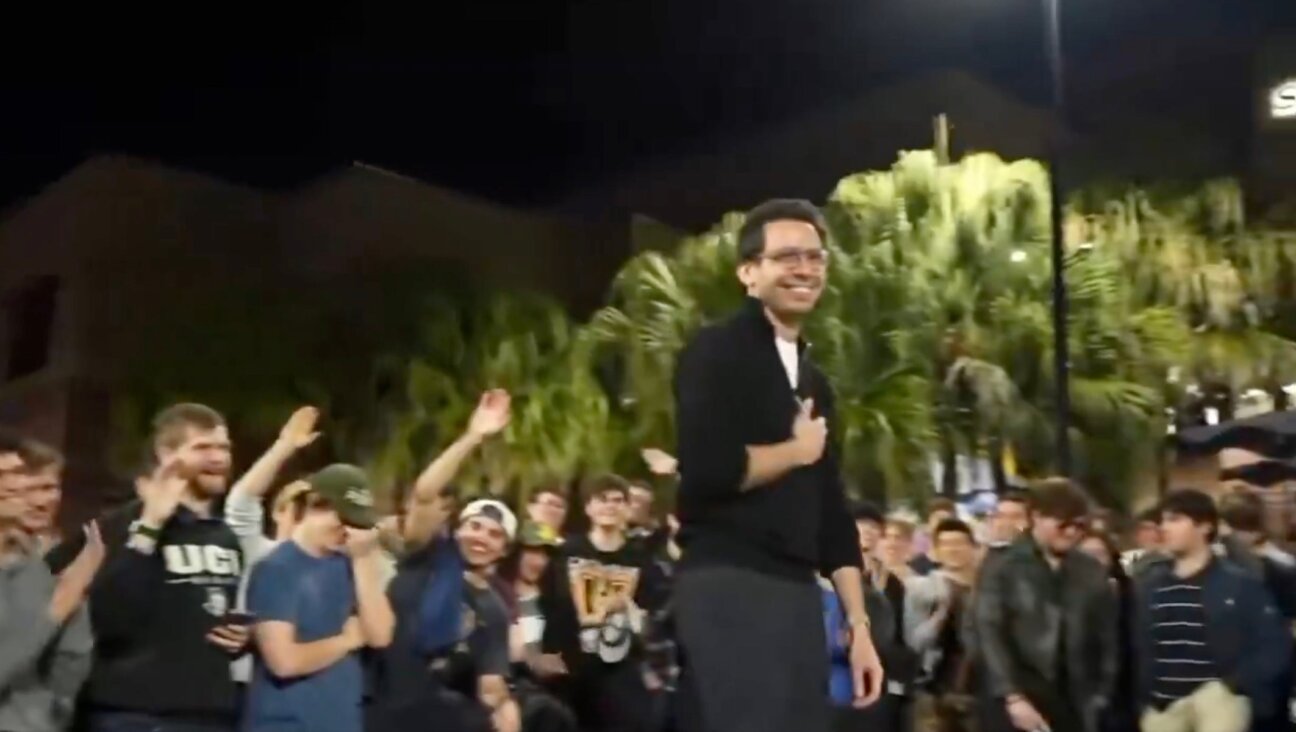A 21st-Century Schlemiel
The Ask
By Sam Lipsyte
Farrar, Straus and Giroux, 304 pages, $25
He is the anti-hero of the American Jewish novel: bright, only not bright enough; more dreamy than driven, and possessed by insatiable, often misappropriated desires. He does not see himself as beholden to his Jewishness, but neither can he escape it. He was Portnoy and Herzog and the male characters in Leonard Michaels’s fiction. In this latest incarnation he is an everyman named Milo Burke, the hero of Sam Lipsyte’s new novel, “The Ask,” a dark comedy about life in 21st-century America.
Milo is a mediocre artist, a loving but irreverent father and a soon-to-be-dumped husband who lives in the Astoria section of Queens and has just been fired from his position as a development officer at a third-tier university in Manhattan. The cause for his dismissal is “hate speech” engendered by Milo’s refusal to capitulate to the demands of an “arrogant, talentless, daddy-damaged waif” — a student at the university who also happens to be the daughter of a major funder and insists on being registered for a seminar called “Impressionism to Regressionism” despite the fact that it is full.
“The Ask” is, quite literally, Milo’s second chance, which comes in the form of an “ask,” or potential donor, named Stuart Purdy, a former college buddy of Milo’s. The two have been out of touch for years, but when Purdy’s wife suggests they donate to her alma mater, the “mediocre university” from which Milo has just been laid off, Purdy insists on working with his old friend. Milo is temporarily called back to the office and told he may be able to get his job back. It’s a happy coincidence, or so it seems.
But sometimes there are dark secrets behind seemingly happy coincidences, and the partnership between Milo and Purdy is one such case. Purdy’s illegitimate son from his now deceased lover has returned from Iraq an angry vet, a double amputee and an orphan. Milo is to be the chief negotiator between the absent father and a son whose existence must be kept secret from Purdy’s pregnant wife. What unfolds is a series of bizarre plot twists that touch on a broad range of contemporary issues — from the war in Iraq to sexism and the economic crisis — as the novel attempts to take on more than it can reasonably address. As with Lipsyte’s previous books, which include a collection of short stories and two novels, the author’s strength in this work lies not in plot, but in language and character development.
Indeed, more interesting than the meandering Purdy plot is Lipsyte’s evocation of Milo as the embodiment of pathos and comedy. Like his literary predecessors — think of Bellow’s Moses Herzog, for example, or Lipsyte’s own Lewis Miner — Milo is obsessed with sex, and hopelessly infantile, although he is less anti-hero than a ne’er-do-well everyman. But Milo is not unintelligent, or inarticulate. And while he is often careless, he is still genuinely sensitive. Awaking in the middle of the night, Milo instinctively heads for his son’s room, where he checks on the boy. Lipsyte’s exquisite writing captures a fleeting moment of intense fatherly love:
They were all lovely in sleep, but none so lovely as Bernie. Here in my humble outer-borough home a godlet took his rest, a miniature deity in need of protection until he was strong enough to fend for himself and, eventually, deliver humankind from fatal folly.
This from a character who swears incessantly in the presence of his toddler son, the man who drinks to “America… that run-down demented old pimp. Can’t keep his bitches in line.” Indeed, embedded in the novel’s viscous sarcasm, one encounters expressions of raw human emotion: “Bernie was a beautiful boy. Good thing, too, as he’d become an expensive hobby… Funny, isn’t it, how you can detest the very being you’d die for in an instant?”
Like “Homeland,” which earned Lipsyte comparisons to Philip Roth, “The Ask” is not overtly Jewish; there are only a few token references to antisemitism and the Holocaust. And yet, the issue of circumcision — Milo is circumcised, his son is not — is a recurrent theme. At one point, Milo recalls that when the boy was an infant, his wife would sing to him “Silent Night,” night after night. A sense of ethnic pride, tribalism or simply of self-assertion kicks in:
Operation Foreskin Rescue was one thing, but did she have to fill Bernie’s brain with Christian death chants? Someday I thought I might go in with an X-Acto blade, Jew cut the little crumb right back into my tribe, my half tribe.
Through humor — biting, absurd and often very black — and witty, original prose, Lipsyte evokes an exceptionally bleak portrait of contemporary American life, one that is rife with dissatisfaction, bitterness and extreme disorientation. All this comes through in the novel’s idiosyncratic plot evolution, but also in the character of Milo, who, although he harbors no grandiose dreams, is plagued by unfulfilled desire. His are the ordinary wants of the average man: a faithful, loving wife; a stable job, a decent income. But even this modicum of normalcy eludes him, which is what makes Milo so tragic a figure.
Shoshana Olidort is a freelance writer living in New York.















